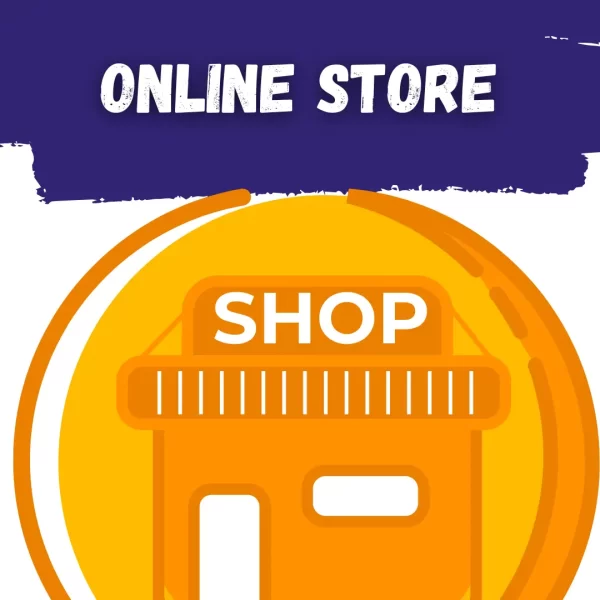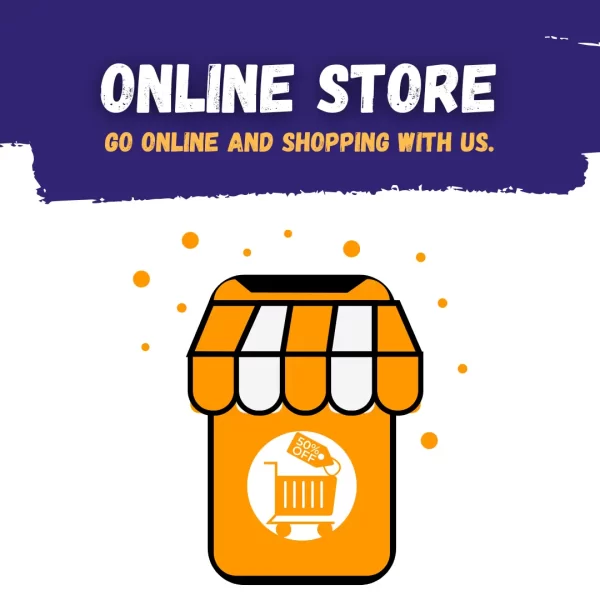Looking for inspiration for your next online store? Check out our list of 100 popular online store ideas in India. From beauty to home decor, find a profitable niche and start selling online now.

100 popular online store ideas in India
- Clothing and fashion accessories
- Electronics and gadgets
- Beauty and personal care products
- Home appliances and furniture
- Books and educational materials
- Health and wellness products
- Toys and games
- Stationery and office supplies
- Grocery and household items
- Handicrafts and handmade goods
- Art and decor items
- Jewelry and watches
- Sports and fitness equipment
- Musical instruments and accessories
- Pet care products
- Baby products and toys
- Kitchen appliances and cookware
- Car and bike accessories
- Mobile phones and accessories
- Computers and peripherals
- Laptops and tablets
- Cameras and photography accessories
- Home and kitchen appliances
- Gaming consoles and accessories
- Power banks and chargers
- Audio and video equipment
- Bags and luggage
- Sunglasses and eyewear
- Personalized gifts and items
- Handbags and wallets
- Footwear and shoes
- Bicycles and cycling accessories
- Health and fitness supplements
- Sarees and ethnic wear
- Kurtis and salwar suits
- Men’s clothing and accessories
- Women’s clothing and accessories
- Kids’ clothing and accessories
- Party and celebration supplies
- Travel and adventure gear
- Fitness trackers and smartwatches
- Home automation devices
- IoT devices and gadgets
- Herbal and ayurvedic products
- Beauty and grooming kits
- Digital subscriptions and memberships
- Online courses and tutorials
- Photography and videography services
- Printing and graphic design services
- Content writing and copywriting services
- Social media marketing and management services
- Digital marketing and SEO services
- Web design and development services
- Mobile app development services
- E-commerce website development services
- Web hosting and domain registration services
- Software and IT services
- Financial and accounting services
- Legal and documentation services
- Translation and interpretation services
- Travel and tour packages
- Hotel and accommodation booking services
- Car and bike rental services
- Flight and bus ticket booking services
- Adventure and trekking tours
- Yoga and meditation classes
- Personalized nutrition and diet plans
- Mental health and therapy services
- Home cleaning and maintenance services
- Car cleaning and detailing services
- Event management and planning services
- Photography and videography services
- Catering and food delivery services
- Health insurance and policies
- Personal loans and credit cards
- Investment and wealth management services
- Mutual funds and stock trading services
- Taxation and compliance services
- Online legal and documentation services
- Online accounting and bookkeeping services
- Online marketing and SEO courses
- Online coding and programming courses
- Online language and communication courses
- Online test preparation and coaching
- Online cooking and recipe courses
- Online music and dance classes
- Online art and craft classes
- Online fitness and workout classes
- Online personal development courses
- Online tutoring and homework help services
- Online business and entrepreneurship courses
- Online writing and publishing courses
- Online video editing and production services
- Online animation and graphic design services
- Online UX and UI design services
- Online copywriting and content writing services
- Online proofreading and editing services
- Online data entry
- Virtual assistant services
- Online customer support and chatbot development services.

Starting an online store
Starting an online store requires careful planning, research, and execution. Here are some things you’ll need to consider and have in place to start an online store:
Decide on a niche: Identify a specific product or service that you want to sell online. This will help you to focus your efforts and target the right audience.
Develop a business plan: Create a detailed business plan that outlines your goals, objectives, target market, budget, and marketing strategy.
Register your business: Register your business and obtain all necessary licenses and permits to operate legally.
Choose a domain name and hosting service: Choose a domain name that is easy to remember, reflects your brand, and is available. Then, select a hosting service that provides reliable and secure hosting for your website.
Develop your website: Design and develop your website, including a user-friendly interface, high-quality images, and clear product descriptions. You can use website builders like Shopify, Wix, or WordPress to create your website.
Create and manage your inventory: Source or create your products or services and manage your inventory to ensure you have enough stock to meet customer demands.
Set up payment gateways: Choose payment gateways that are reliable and secure, and integrate them into your website to enable customers to pay for their orders.
Set up shipping and delivery: Choose a reliable shipping partner and set up a shipping and delivery system that provides real-time tracking of orders.
Implement customer support: Provide excellent customer support through various channels, such as email, phone, or live chat, to address customer concerns and queries.
Promote your online store: Develop a marketing strategy to promote your online store through various channels, including social media, email marketing, and search engine optimization (SEO).
Starting an online store can be a rewarding venture, but it requires careful planning, hard work, and dedication. By taking the necessary steps to set up your online store, you can create a successful and profitable business.

Regulatory formalities to start an online store
There are regulatory formalities that need to be followed when starting an online store in India. Here are some of the key requirements:
Business registration: You will need to register your business with the Registrar of Companies (RoC) and obtain a certificate of incorporation.
Goods and Services Tax (GST) registration: You must register for GST if your annual turnover exceeds a certain threshold, which varies depending on the state in which you are operating.
Payment gateway integration: You must ensure that the payment gateway you are using is compliant with the guidelines issued by the Reserve Bank of India (RBI) and other regulatory authorities.
Cyber law compliance: You must comply with the Information Technology Act, 2000, which governs electronic transactions and cybersecurity in India.
Consumer protection laws: You must comply with consumer protection laws, such as the Consumer Protection Act, 2019, which protects consumers against unfair trade practices and provides for the establishment of consumer courts.
Intellectual property rights: You must ensure that your online store does not infringe on any trademarks, copyrights, or patents.
Data protection and privacy: You must comply with data protection and privacy laws, such as the Personal Data Protection Bill, which is currently under consideration by the Indian parliament.
It is important to consult with a lawyer or a legal expert to ensure that you are complying with all relevant regulations and laws when starting an online store in India.
Cost of building a website for an online store in India
The cost of building a website for an online store in India can vary depending on several factors such as the platform you choose, the features you require, the complexity of your website, and the web development company you hire. Here is a rough cost estimate based on the common expenses involved in building an online store website in India:
Domain name and hosting: This can cost between Rs. 1000 to Rs. 5000 per year, depending on the hosting provider and the type of hosting you choose.
Website design and development: The cost of website design and development can vary from Rs. 10,000 to Rs. 50,000, depending on the complexity of your website and the features you require.
E-commerce platform: If you are using a platform like Shopify, the monthly cost can range from Rs. 750 to Rs. 2000 depending on the plan you choose.
Payment gateway integration: The cost of integrating a payment gateway with your website can range from Rs. 10,000 to Rs. 50,000, depending on the payment gateway provider.
Marketing and SEO: You will need to invest in marketing and SEO to promote your online store. This can cost between Rs. 10,000 to Rs. 50,000 per month, depending on the strategies you use.
So, the total cost of building a website for an online store in India can range from Rs. 30,000 to Rs. 2,00,000 or more, depending on the factors mentioned above. It is important to note that these are rough estimates and the actual cost may vary depending on your specific requirements.
Operational costs associated with running an online store
There are several operational costs associated with running an online store in addition to inventory costs. Here are some of the common operational costs that you should consider:
Website maintenance: You need to ensure that your website is up-to-date and running smoothly. This includes maintaining the software, security, and plugins, which may require the services of a web developer or a maintenance service provider.
Payment gateway fees: Payment gateway providers usually charge a transaction fee for each transaction processed through their gateway. The transaction fee varies depending on the payment gateway provider and the payment method used.
Shipping and handling: You need to factor in the cost of shipping and handling, including packaging materials, delivery charges, and customs duties if you are shipping products internationally.
Marketing and advertising: To attract customers to your online store, you need to invest in marketing and advertising. This may include social media marketing, search engine optimization, pay-per-click advertising, and email marketing, among others.
Customer service: You need to provide excellent customer service to your customers, which may require hiring a customer support team, investing in customer support software, or outsourcing customer support to a third-party service provider.
Accounting and taxes: You need to keep track of your income and expenses and file tax returns on time. You may need to hire an accountant or use accounting software to manage your finances.
Business insurance: It is advisable to purchase business insurance to protect your business against unforeseen circumstances such as theft, damage, or liability claims.
These are some of the common operational costs associated with running an online store. It is important to factor in these costs when planning your budget and pricing your products to ensure that your business is profitable.
Content design and product portfolio development cost
Content design and product portfolio development are also important costs to consider when starting an online store. Here are some of the associated costs:
Product development: If you are developing your own products, you will need to invest in product research and development, product design, and manufacturing, which can be a significant upfront cost.
Product sourcing: If you are sourcing products from suppliers, you may need to invest in finding reliable suppliers, negotiating prices, and managing inventory levels.
Content creation: To showcase your products on your website, you will need to invest in creating high-quality product images, videos, and descriptions. This may require the services of a professional photographer, copywriter, or graphic designer.
Website design and development: To create a visually appealing and user-friendly online store, you will need to invest in website design and development. This includes creating an attractive layout, designing the user interface, and ensuring that the website is mobile-friendly.
Product catalog management: You will need to manage your product catalog, including updating product descriptions, adding new products, and removing discontinued products. This may require the services of a product catalog management system or a product catalog management service provider.
Content marketing: To promote your online store and attract customers, you may need to invest in content marketing, such as blog posts, social media content, and email newsletters.
These are some of the associated costs of content design and product portfolio development when starting an online store. It is important to factor in these costs when planning your budget and pricing your products to ensure that your business is profitable.
Dos and don'ts for starting and running a successful online store business
Here are some dos and don’ts for starting and running a successful online store business:
Dos:
Do identify your niche: Focus on a specific niche and offer products that cater to a specific audience. This will help you differentiate yourself from competitors and attract customers who are looking for specific products.
Do invest in high-quality product images: High-quality product images are essential for showcasing your products and enticing customers to make a purchase.
Do offer excellent customer service: Respond promptly to customer inquiries and provide helpful and courteous support. This will help you build a loyal customer base and encourage repeat purchases.
Do optimize your website for search engines: Optimize your website for search engines so that customers can find your products easily. This includes using relevant keywords, optimizing product descriptions, and building high-quality backlinks.
Do offer competitive pricing: Offer competitive pricing to attract customers and stay competitive in the market.
Do use social media to promote your products: Use social media platforms such as Facebook, Instagram, and Twitter to promote your products and engage with customers.
Don’ts:
Don’t ignore website design and usability: Your website should be easy to navigate and visually appealing. A poorly designed website can turn customers away.
Don’t overcomplicate your product offerings: Offer a manageable number of products and avoid offering too many options that can overwhelm customers.
Don’t ignore the importance of customer reviews: Encourage customers to leave reviews of your products on your website or social media platforms. Positive reviews can increase customer trust and encourage future purchases.
Don’t ignore your competitors: Keep an eye on your competitors and stay up-to-date on their pricing, product offerings, and marketing strategies.
Don’t neglect shipping and delivery: Make sure that you provide accurate and timely shipping and delivery information to customers. Late deliveries or inaccurate tracking information can damage your reputation.
Don’t compromise on website security: Ensure that your website is secure and customer information is protected. Use SSL encryption, secure payment gateways, and two-factor authentication to protect your customers’ data.
These are some dos and don’ts for starting and running a successful online store business. It is important to follow these guidelines to ensure that your business is profitable and successful in the long run.